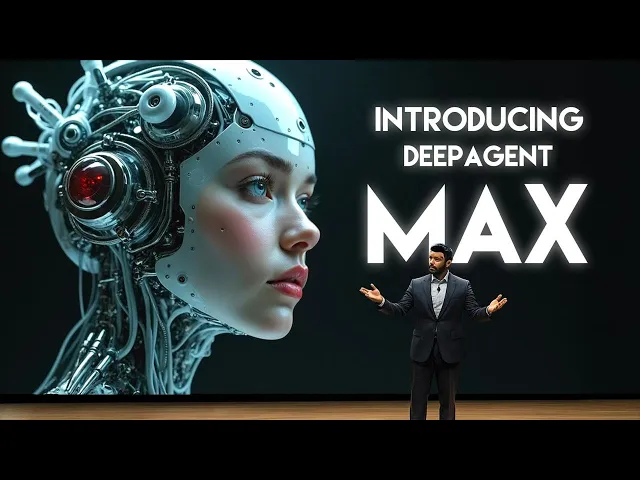This AI Agent Just Became the MOST Powerful AI Tool in the World: Shocking Update

The ultimate AI agent redefines work
In a world awash with AI innovations, Claude Opus and its AI agent integration represent a watershed moment for knowledge workers. The latest video from AI enthusiast Nate Proser reveals how AI agents—particularly Claude's implementation—are transforming our relationship with technology in ways that even recent advances like ChatGPT couldn't achieve. What we're witnessing isn't merely an incremental improvement but rather a fundamental shift in how AI can become an active partner in our professional lives.
Key Points
-
Claude Opus has implemented AI agents that can autonomously execute complex multi-step tasks without requiring constant human oversight or manual step-by-step instructions.
-
These agents demonstrate remarkable contextual understanding, able to identify the appropriate course of action based on a natural language request and then execute across multiple software environments.
-
The ability to handle real-world executions (not just planning) marks a crucial evolution from previous AI models that could generate plans but couldn't act on them independently.
-
This advancement significantly reduces "AI friction"—the cognitive load and time cost of translating human intent into specific AI instructions—making AI truly practical for daily knowledge work.
-
The integrated nature of these AI agents (working within existing software) means they operate as extensions of human capability rather than replacements or separate tools.
The Breakthrough We've Been Waiting For
The most profound insight from this development is the elimination of what I call the "instruction translation tax." Previous generative AI systems required users to become skilled prompt engineers, constantly refining their requests to get useful results. Claude's agent implementation fundamentally changes this dynamic by accepting natural, conversational requests and determining on its own how to execute them.
This matters because it represents the transition from AI as a tool to AI as a teammate. The difference is substantial: tools require explicit operation, while teammates understand intent and independently contribute toward shared goals. For business professionals, this shifts AI from being merely impressive to being genuinely valuable in daily work. Rather than adjusting our workflow to accommodate AI limitations, the AI now adapts to our natural communication style.
Beyond the Video: Real-World Implications
What the video doesn't fully explore is how this agent capability will transform existing business workflows across industries. Take marketing campaign management, for instance. A CMO could simply request: "Analyze last quarter's campaign performance
Recent Videos
How To Earn MONEY With Images (No Bullsh*t)
Smart earnings from your image collection In today's digital economy, passive income streams have become increasingly accessible to creators with various skill sets. A recent YouTube video cuts through the hype to explore legitimate ways photographers, designers, and even casual smartphone users can monetize their image collections. The strategies outlined don't rely on unrealistic promises or complicated schemes—instead, they focus on established marketplaces with proven revenue potential for image creators. Key Points Stock photography platforms like Shutterstock, Adobe Stock, and Getty Images remain viable income sources when you understand their specific requirements and optimize your submissions accordingly. Specialized marketplaces focusing...
Oct 3, 2025New SHAPE SHIFTING AI Robot Is Freaking People Out
Liquid robots will change everything In the quiet labs of Carnegie Mellon University, scientists have created something that feels plucked from science fiction—a magnetic slime robot that can transform between liquid and solid states, slipping through tight spaces before reassembling on the other side. This technology, showcased in a recent YouTube video, represents a significant leap beyond traditional robotics into a realm where machines mimic not just animal movements, but their fundamental physical properties. While the internet might be buzzing with dystopian concerns about "shape-shifting terminators," the reality offers far more promising applications that could revolutionize medicine, rescue operations, and...
Oct 3, 2025How To Do Homeless AI Tiktok Trend (Tiktok Homeless AI Tutorial)
AI homeless trend raises ethical concerns In an era where social media trends evolve faster than we can comprehend them, TikTok's "homeless AI" trend has sparked both creative engagement and serious ethical questions. The trend, which involves using AI to transform ordinary photos into images depicting homelessness, has rapidly gained traction across the platform, with creators eagerly jumping on board to showcase their digital transformations. While the technical process is relatively straightforward, the implications of digitally "becoming homeless" for entertainment deserve careful consideration. The video tutorial provides a step-by-step guide on creating these AI-generated images, explaining how users can transform...
